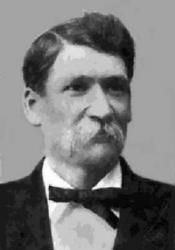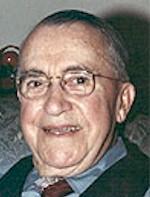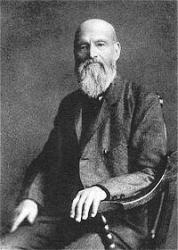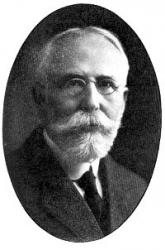Planning worship?
Check out our sister site, ZeteoSearch.org,
for 20+ additional resources related to your search.
- |
User Links
Person Results
‹ Return to hymnal







Export as CSV
Mrs. Harry Coghill
1836 - 1907 Person Name: Anna Louisa Walker Coghill Hymnal Number: d542 Author of "Work, for the night is coming, work through the morning hours" in Cross and Crown Hymnal, 3rd ed. Coghill, Annie Louisa, née Walker, daughter of Robert Walker, was born at Kiddermore, Staffordshire, in 1836, and married Harry Coghill in 1884. During a residence for some time in Canada several of her poetical pieces were printed in the Canadian newspapers. These were gathered together and published c. 1859 in her Leaves from the Backwoods. In addition to novels, plays for children, and magazine work, she edited the Autobiography and Letters of her cousin, Mrs. Oliphant, in 1898. Her popular hymn,"Work, for the night is coming," p. 317, ii., was written in Canada in 1854, and published in a Canadian newspaper, from which it passed, without any acknowledgement of the authorship, into Ira D. Sankey's Sacred Songs and Solos. Authorized text in her Oak and Maple, 1890, p. 17.
--John Julian, Dictionary of Hymnology, New Supplement (1907)
======================
[See also: http://biographi.ca/en/bio.php?id_nbr=7126]
Mrs. Harry Coghill
L. L. Pickett

1859 - 1928 Person Name: Leander L. Pickett Hymnal Number: d387 Author of "Speak to me, Jesus" in Cross and Crown Hymnal, 3rd ed. Rv Leander Lycurgus Pickett USA 1859-1928. Born at Burnsville, MS, he became a Methodist evangelist. He held meetings in several states and at Holiness campgrounds. After marrying Ludie, they served pastorates in northeast TX, and Columbia, SC, before moving to Wilmore, KY. Pickett married Pruvy Melviney Dorough in 1878, and they had a son, James, in 1880. After her death in 1887, he married Ludie in 1888. He was a renowned speaker, leader, minister, author, hymnwriter, and patriot, prominent in the Holiness Movement, and helped found Asbury College (now University), at Wilmore, KY, where he also served as the financial agent of the board of trustees for many years. The Picketts boarded m,inistry students attending Asbury, among whom was missionary E Stanley Jones. In 1905 a student prayer meeting at the Pickett home spilled out to the Asbury campus in a revival that spread around the town of Wilmore. Between 1891 and 1926 Pickett published 11 song books, some with others, including John Sweney, William J Kirkpatrick, John Bryant, Martin Knapp, Elisha A Hoffman, Burke Culpepper, William Marks, Benjamin Butts, and Robert McNeill. He died at Middlesboro, KY.
John Perry
L. L. Pickett
Henry Barraclough

1891 - 1983 Hymnal Number: d263 Author of "Ivory palaces" in Cross and Crown Hymnal, 3rd ed. Barraclough was educated in England, and studied organ and piano from the age of five. He worked for a while as a claims adjuster for the Car and General Insurance Company. From 1911-13, he was secretary to Member of Parliament George Scott Robertson. He then joined the Chapman-Alexander evangelistic team as a pianist, and traveled with them to America and remained there. He fought in World War I, rising to the rank of sergeant major, then became secretary, and later an administrator, of the General Assembly of the Presbyterian Church (1919-61). He wrote words for 20 hymns and tunes to 120.
© The Cyber Hymnal™ (www.hymntime.com/tch)
Henry Barraclough
Erastus Johnson

1826 - 1909 Hymnal Number: d306 Author of "The Rock of refuge" in Cross and Crown Hymnal, 3rd ed. Johnson, Erastus. (April 20, 1826--June 16, 1909, Waltham, Massachusetts). This man whose life was singularly active and varied was born in a logging camp at Lincoln, Maine. He was buried in Jackson, Maine. He entered the Academy at Calais, Maine, at the age of fifteen, spent two years there, taught school for the next six, and then entered Bangor Theological Seminary. His health failed, and, threatened with the loss of his sight, was compelled to give up preparation for the ministry. On the advice of his physician he took a sea voyage, embarging on the ship Gold Hunter en route from New York to California. The crew of the ship mutinied just before rounding Cape Horn and as Johnson was the only person on board who knew anything about navigation, other than the captive officers, he was pressed into service to take the ship on to its destination, San Francisco. This he was able to do successfully. Not a seeker after California's newfound gold, he was, variously, a rancher in California, a farmer in Washington state, in the oil business in Pennsylvania for some twenty years, and again a farmer in Maine until his retirement in Waltham, Mass. As ardent Methodist, always interested in religious work, especially in the Y.M.C.A., he was a lifelong student of the Bible, a fluent speaker, and a musician of moderate attainment. He published one book of poems, most of which were of interest only to members of his immediate family.
Sources: Correspondence with Mrs. Julia Johnson Howe, daughter of the subject of this sketch; Our Hymnody, Robert G. McCutchan; Hymns of Our Faith, Reynolds.
--Robert G. McCutchan, DNAH Archives
Erastus Johnson
Elizabeth Codner

1824 - 1919 Hymnal Number: d241 Author of "Even me, even me" in Cross and Crown Hymnal, 3rd ed. CODNER, Elizabeth (née Harris) was born in Dartmouth, Devon in 1823. Croydon, Surrey, 28 March 1919. She was interested in the mission field from an early age, and two of her early publications were entitled The Missionary Ship (1853) and The Missionary Farewell (1854) relating to the Patagonia Mission (later the South American Missionary Society). She married William Pennefather at the Mildmay Protestant Mission in London, and edited the mission’s monthly Woman’s Work in the Great Harvest Field. At age 17, she was editing a magazine for the Patagonia Mission, later the South American Missionary Society. She died in Croydon, Surrey on 28 March 1919.
NN, Hymnary
Elizabeth Codner
Phoebe Palmer

1807 - 1874 Hymnal Number: d301 Author of "O, how I love Jesus" in Cross and Crown Hymnal, 3rd ed. Palmer, Phoebe, an American Methodist, b. 1807, and d. in 1874, wrote "Blessed Bible! how I love thee" (Holy Scriptures), and “O! when shall I sweep through the gates" (Heaven Anticipated). The latter is in I. D. Sankey's Sacred Songs and Solos, 1878.
--John Julian, Dictionary of Hymnology, Appendix, Part II (1907)
Phoebe Palmer
Ellen M. H. Gates

1835 - 1920 Hymnal Number: d169 Author of "Home of the soul" in Cross and Crown Hymnal, 3rd ed. Gates, Ellen, née Huntingdon, of Elizabeth, New Jersey, is the author of several popular pieces in the American Mission and Sunday School hymn-books. Of these the following have passed from the American books into Sankey's Sacred Songs and Solos:—
1. Come home, come home, you are weary at heart. Invitation.
2. I am now a child of God. Saved through Jesus.
3. I will sing you a song of that beautiful land. Concerning Heaven.
4. O the clanging bells of time. Yearning for Heaven.
5. Say, is your lamp burning, my brother. Watching and Waiting.
Concerning her poem which is used as a hymn in America, "If you cannot on the ocean" (Duty), Duffield says her account of its origin is as follows:—"The lines were written upon my slate one snowy afternoon in the winter of 1860. I knew, as I know now, that the poem was only a simple little thing, but somehow 1 had a presentiment that it had wings, and would fly into sorrowful hearts, uplifting and strengthening them." (English Hymns, 1886, p. 257.)
--John Julian, Dictionary of Hymnology, Appendix, Part II (1907)
======================
Gates, Ellen, p. 1565, i., now (1906) of New York city, was born at Torrington, Conn., and married to Isaac E. Gates. Her poems, &c, were published as Treasures of Kurium, 1895. Concerning Dr. March's hymn, "Hark! the voice of Jesus crying" (q.v.), and Mrs. Gates's "If you cannot on the ocean," some confusion has arisen, mainly, we think, from the fact that the opening line of Mrs. Gates's hymn, written in 1860, and the first line of Dr. March's second stanza are nearly the same, i.e., "If you cannot on the ocean," and "If you cannot cross the ocean." The incident which associates the late President Lincoln's name with this hymn is thus set forth by Mr. Philip Phillips in his Singing Pilgrim, 1866, p. 97:—
"The words of this truly beautiful song ['If you cannot on the ocean'] were written by Mrs. Ellen H. Gates . . . When our lamented President Lincoln heard Mr. Phillips sing it at the Hall of Representatives in Washington, Feb. 29, 1865, he was overcome with emotion, and sent up the following written request [given in facsimile on p. 97] to Hon. Wm. H. Seward, Chairman, for its repetition:—' Near the end let us have "Your Mission" [the title of the hymn] repeated by Mr. Phillips. Don't say I called for it. A. Lincoln.' "
It was through this incident that the hymn became known through America as " President Lincoln's favourite hymn." [Rev. James Mearns, M.A.]
--John Julian, Dictionary of Hymnology, New Supplement (1907)
Ellen M. H. Gates
Frances Bevan
1827 - 1909 Person Name: Emma Frances Bevan Hymnal Number: d377 Author of "Christ receiveth sinful men" in Cross and Crown Hymnal, 3rd ed. Bevan, Emma Frances, née Shuttleworth, daughter of the Rev. Philip Nicholas Shuttleworth, Warden of New Coll., Oxford, afterwards Bishop of Chichester, was born at Oxford, Sept. 25, 1827, and was married to Mr. R. C. L. Bevan, of the Lombard Street banking firm, in 1856.
Mrs. Bevan published in 1858 a series of translations from the German as Songs of Eternal Life (Lond., Hamilton, Adams, & Co.), in a volume which, from its unusual size and comparative costliness, has received less attention than it deserves, for the trs. are decidedly above the average in merit. A number have come into common use, but almost always without her name, the best known being those noted under “O Gott, O Geist, O Licht dea Lebens," and "Jedes Herz will etwas li ben." Most of these are annotated throughout this Dictionary under their authors' names, or German first lines. That at p. 630, "O past are the fast-days,—the Feast-day, the Feast-day is come," is a translation through the German from the Persian of Dschellaleddin Rumi 1207-1273. Mrs. Bevan also published Songs of Praise for Christian Pilgrims (London, Hamilton, Adams, 1859), the translations in which are also annotated throughout this Dictionary as far as possible. [Rev. James Mearns, M.A.]
-- John Julian, Dictionary of Hymnology (1907)
Frances Bevan
Howard B. Grose

1851 - 1939 Hymnal Number: d94 Author of "Give of your best to the Master, Give of the strength" in Cross and Crown Hymnal, 3rd ed. Born: September 5, 1851, Millerton, New York.
Died: May 19, 1939, Ballston Spa, New York.
Buried: Ballston Spa, New York.
Grose attended the University of Chicago, Illinois, and the University of Rochester, New York (AB 1876, AM 1880). He was ordained a Baptist minister in 1883, and served at the First Baptist Church, Poughkeepsie, New York (1883-87) and the First Baptist Church, Pittsburgh, Pennsylvania (1888-90). He also served as president of the University of South Dakota (1890-92), taught history at the University of Chicago (1892-96), was assistant editor of The Watchman in Boston, Massachusetts (1896-1900), and editorial secretary for the American Baptist Home Mission Society (1904-10), and edited the Missions journal for 23 years. He lived his later years in Mount Vernon, New York. His works include:
The Endeavor Hymnal (New York: 1902)
Aliens or Americans, 1906
The Incoming Millions, 1906
The Praise Book, with George B. Graff (Boston, Massachusetts: United Society of Christian Endeavor, 1906)
Advance to the Antilles, 1910
Never Man So Spake, 1924
--www.hymntime.org/tch
Howard B. Grose
I. G. Martin
1862 - 1957 Hymnal Number: d166 Author of "The eastern gate" in Cross and Crown Hymnal, 3rd ed. Martin, Isaiah Guyman. (Gentry County, Missouri, April 18, 1862--August 23, 1957, Pasadena, California). Richmond School of Music; Missouri (now Kansas) Wesleyan; Iliff School of Theology. Married in 1905, two sons, one daughter. Converted at age 12, joined the Baptist Church; 1893 joined the Methodist Church and began his ministry. 1903 joined the Church of the Nazarene and in 1905 was appointed District Superintendent of "all the territory east of the Rocky Mountains." Pastored First Church of the Nazarene, Chicago; evangelist. Tenor soloist; composed songs as a hobby (around 200), frequently while playing the reed organ.
"Eastern Gate" is probably his most familiar hymn. It was written as a tribute to Dr. P.F. Bresee's traditional farewell at gatherings of the Church of the Nazarene, "We will meet at the Eastern Gate." According to Martin, "One of the old-timers was trying to get a tune for some words he had written, but couldn't put it over, so I got to humming a tune, which turned out to be 'Eastern Gate.'"
--E. Roger Taylor, DNAH Archives
I. G. Martin


 My Starred Hymns
My Starred Hymns


